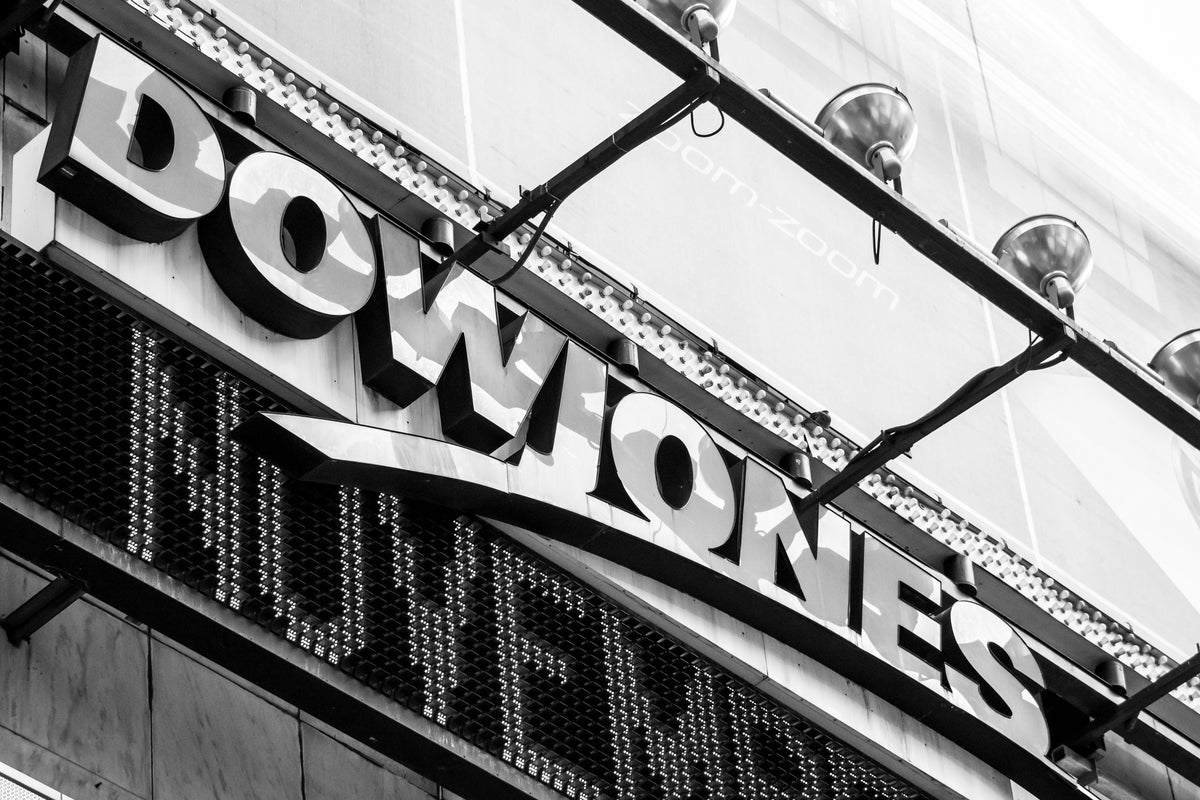[ad_1]
If you are a regular to my articles, you will know that I am a big believer in the 200 simple moving average (200sma).
Let’s go through a brief history of this critical moving average.
Old-school traders used to draw charts by hand, making them uber-selective with the indicators they used. As you can imagine, updating a single indicator daily across a ton of charts was a laborious process.
However, the advantage of this was clean charts with a primary focus on the price of an asset, as it should be.
Compare that to traders’ charts today, which are usually a dog’s dinner of indicators, many of which are defunct and outdated. I have provided a screenshot for some comic relief.
It’s an eyesore! I mean, really, how many indicators do you need to tell you if the market is bullish or bearish? If you need that many, then something is missing somewhere and that usually is how to read a chart, the foundation of trading/investing.
Compare that to my daily chart of the Dow Jones 30 below. Ah the bliss of a clean chart.
The 200sma is one of those rare timeless indicators still used today by institutions and private investors who understand its necessity.
Why the 200sma?
Old-school traders discovered it was a proven indicator of the long-term trend. If the price of an asset was:
- Above the 200sma, they would look for long setups.
- Below the 200sma, they would look for short setups.
That same logic holds today. In my previous article, I highlighted how the S&P 500 on the weekly timeframe is now finding support at the 200sma.
Through 2022, the S&P 500 has never moved below the weekly 200sma, which is why we have never entered a bear market. This is despite the noise of the mis-informed on our media channels. You would do well to ignore these quacks and focus on the charts.
The Dow Jones 30 is leading the way as it is the first index, compared to the Nasdaq 100 and the S&P 500, to move above the daily 200sma since August.
Below I have the daily timeframe
The price of the Dow Jones 30 is now trading above both the daily and weekly 200sma giving it an overall bullish bias.
We now need to apply patience. Why?
To see if this is the start of an actual reversal in the market from a bullish to bearish or if this is a pop and a drop like we saw in August. That is, has the price temporarily popped above the daily 200sma before a drop back below?
My bias is always in the direction of the long-term trend, which has been bullish since 2009.
But I am not in the habit of predicting. Jumping in too early is how many end up on the wrong side of the market. I prefer to wait for the market to dictate and confirm a direction before entering the strongest stocks.
For now, I continue to stand aside and monitor how the indices react to the 200sma before acting.
This post contains sponsored advertising content. This content is for informational purposes only and not intended to be investing advice.
[ad_2]
Image and article originally from www.benzinga.com. Read the original article here.

